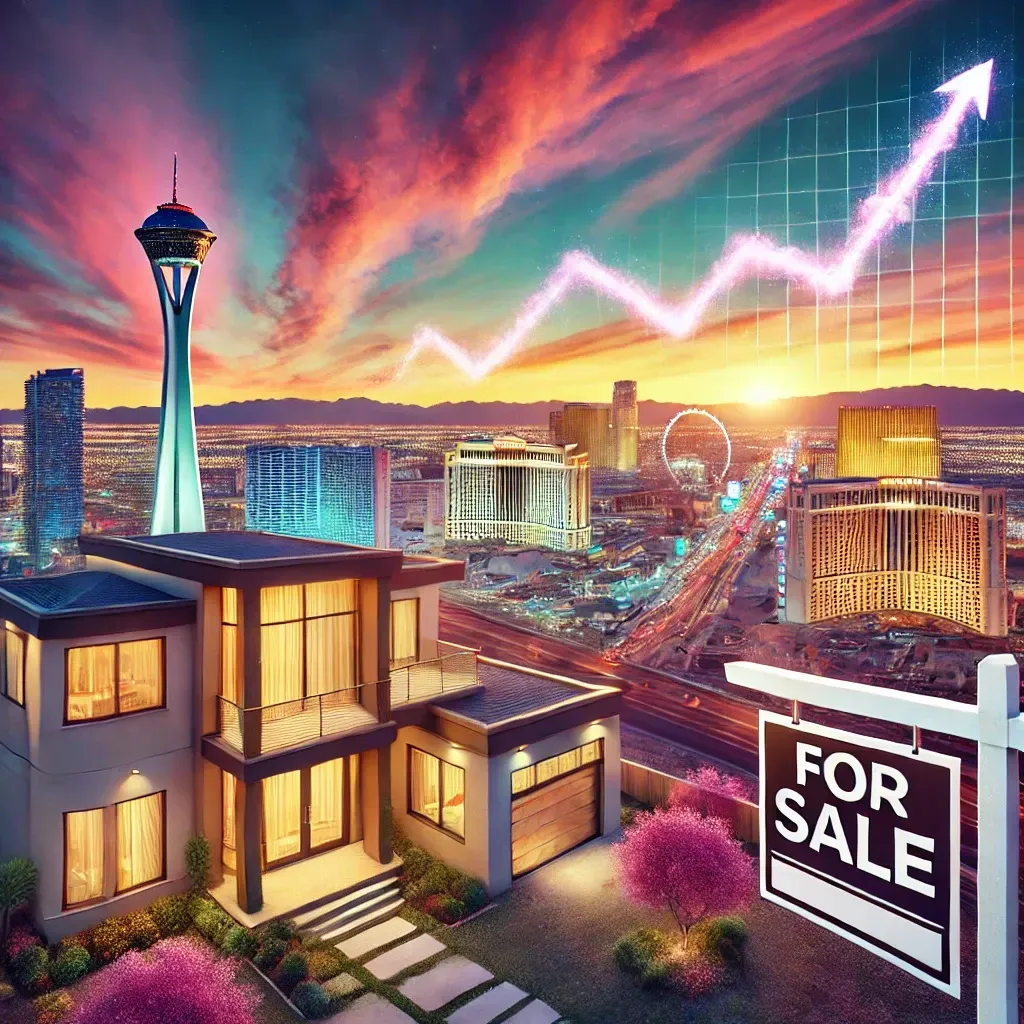
Understanding The Rising Costs of Las Vegas Homes
Understanding Las Vegas Housing Costs: Trends, Insights, and Forecasts
Las Vegas has long been famous for its bright lights and exciting shows. It's a city that never sleeps, with many activities and opportunities. But more recently, people are talking about Las Vegas for a different reason—the rising cost of homes. Let's explore why houses in Las Vegas are getting more expensive each year.

Look at the Past: Ten Years of Growth
Over the past ten years, the housing market in Las Vegas has grown a lot. The price of homes increased by over 167%, which means they were more than double what they used to be. Every year, on average, home prices went up by 10%. This kind of growth is among the top 10% across the United States.
But why has this happened? Las Vegas has a strong economy, partly because of its big tourism industry. Millions of people visit every year, bringing lots of money into the city. And more and more people are moving here, which means they need homes. This strong economy makes the city a popular place to live, pushing up home prices.

A City with Strong Demand
Las Vegas doesn't just attract visitors but also new residents from around the country. This increase in new residents creates a high demand for homes. When more people want to buy homes than there are homes available, the prices go up. It's like when a new video game is released, and everyone wants it—the price can be high because everyone is trying to buy it at the same time.
The demand has been so strong that homes in Las Vegas sell very quickly. Sometimes, a house is only on the market for about two weeks before someone buys it. This shows that lots of people want to live in Las Vegas.

The Influence of Luxury Homes
Luxury homes in Las Vegas are also affecting prices. These are the big, fancy houses you might see on TV. These high-end homes are in demand because some people want to live in style. Over the past year, prices for these luxury homes have gone up by 13.5%. Even though not everyone can afford these expensive homes, they still have an impact on the overall housing market.

Changes Expected in the Future
While the prices have been climbing, experts think there might be a small drop soon. By the end of 2024, Las Vegas home prices are expected to decrease slightly by 0.3%. By 2025, things might calm down even more. Prices are expected to grow only a little, around 1% or 2% each year. It's like when a roller coaster slows down after a big drop—things are settling back into a more regular pattern.
High mortgage rates, which are the interest that people pay on their home loans, may also slow things down. If it costs more to borrow money to buy a house, fewer people might want to buy. But this doesn't mean it's a bad time to buy a home. It just suggests that the market might not rise as fast as before.

What Are Sellers Doing?
With high prices and faster sales, sellers are also changing their strategies. More people are putting their homes up for sale, but not all of them are getting offers quickly. There's been a 34.2% increase in the number of homes without offers compared to last year. This means that the market is becoming more balanced, with more homes available for buyers to choose from.
For sellers, this is an important time to think carefully about pricing their homes. They might have to price their homes more competitively to attract buyers. And with the market slowing down slightly, they might need to consider what they can do to make their homes stand out.

How Buyers Are Adapting
For people looking to buy homes, especially those coming from out of state, it's important to stay informed. Navigating a competitive market can be tricky, but knowing the current trends and forecasts can help. Buyers need to consider the kind of home they want, whether it's a new construction or a resale home, and what neighborhoods meet their needs and lifestyles.
Potential buyers should also be prepared for quick decision-making since homes are still selling fast. Having a clear budget and understanding of what they can afford is important. It can help them act quickly and confidently when they find the right home.

What It Means for Investors
Investors in the Las Vegas housing market are seeing an area full of opportunities. They're looking at areas where new homes can be built or older homes can be fixed up. Las Vegas is appealing to retirees and remote workers who find the city a great place to settle, thanks to its climate and lifestyle. Investors see this as a chance to meet the needs of these groups by offering affordable and comfortable housing options.

Conclusion
The Las Vegas housing market is on an interesting journey. Prices have been rising for a while, and the demand for homes remains high. But with a slight cooling expected in the next couple of years, it's a good idea for both buyers and sellers to stay informed and consider their options carefully.
Whether you're buying, selling, or investing, understanding the trends and what drives the market can help you make better decisions. And in a city as vibrant as Las Vegas, finding the right home is an exciting adventure.

702-683-3362
